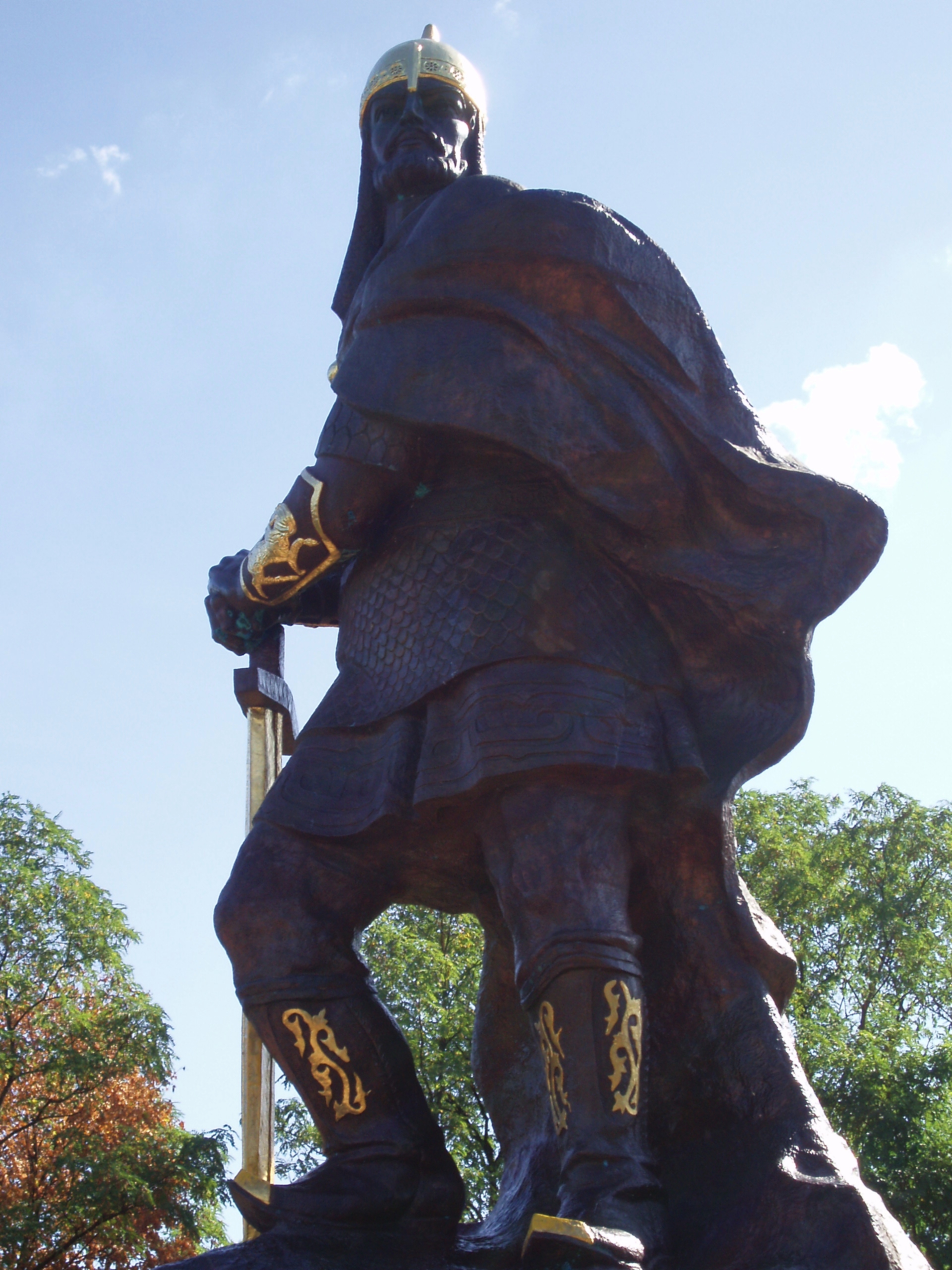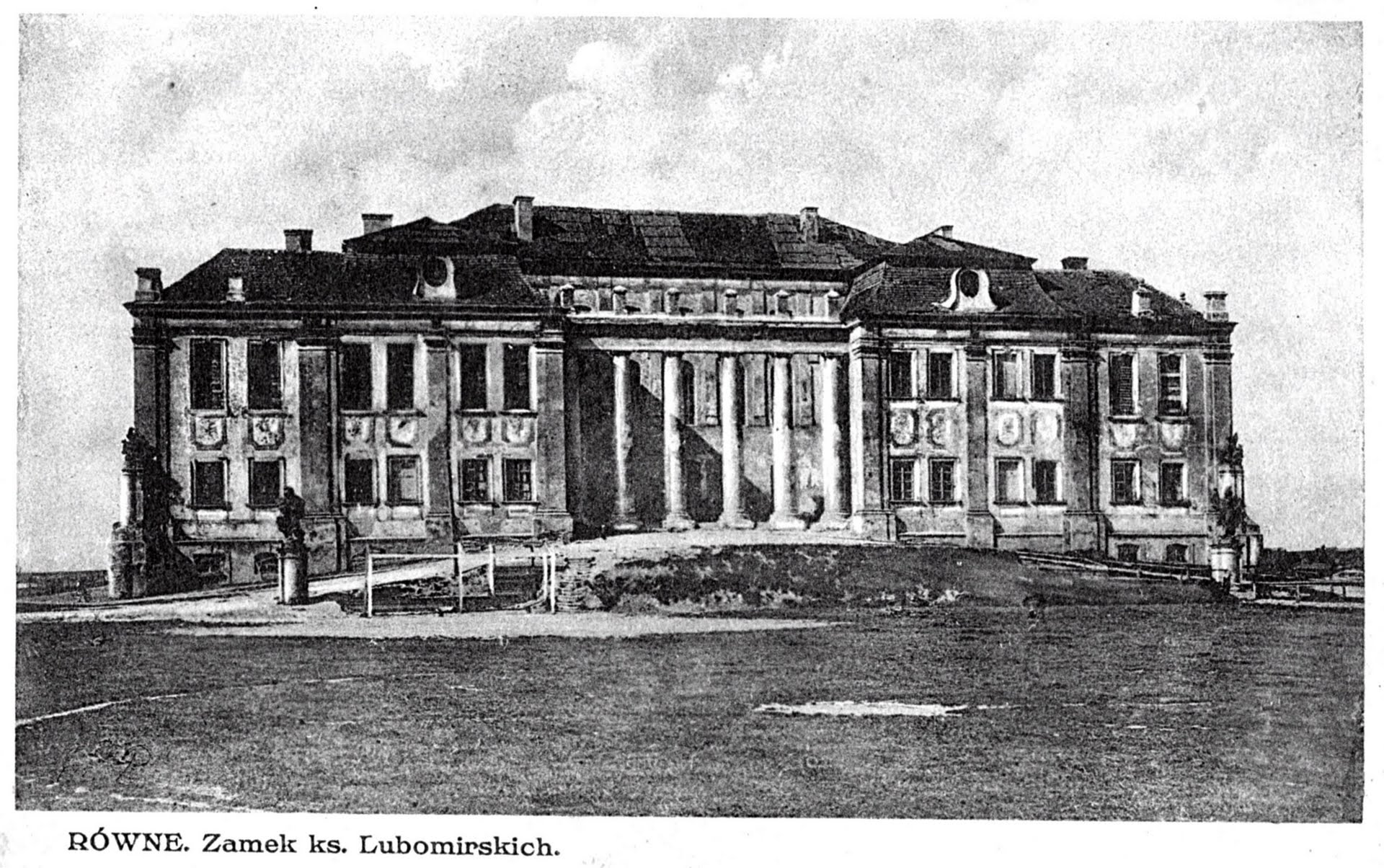|
Volodymyr Oskilko
Volodymyr Panteleimonovych Oskilko ( uk, Володимир Пантелеймонович Оскілко; 1892? – 19 June 1926) was a Ukrainian military activist and administrator. He became famous for the "Oskilko Affair" (see below). Biography Volodymyr Oskilko was born January 12, 1892, in the village of Horodok, Rovno uyezd, in the Volyn Governorate. He graduated from a gymnasium, then from a teacher's seminary. Oskilko started to work as a village teacher in Zolote near Dubrovytsia (today in Rivne Oblast). With the start of World War I, Oskilko was drafted into the Russian Imperial Army, where he had a successful career, reaching the rank of lieutenant colonel. After the February Revolution in 1917, he was appointed a governorate commissar of the Russian Provisional Government in Tula. By the end of 1917 he had returned to his native Volyn in Ukraine, where he participated in the formation of the Ukrainian People's Army. At the beginning of 1918, Oskilko was appointed a ... [...More Info...] [...Related Items...] OR: [Wikipedia] [Google] [Baidu] |
Volyn Governorate
Volhynian Governorate or Volyn Governorate (russian: Волы́нская губе́рния, translit=Volynskaja gubernija, uk, Волинська губернія, translit=Volynska huberniia) was an administrative-territorial unit initially of the Russian Empire, created at the end of 1796 after the Third Partition of Poland from the territory of the short-lived Volhynian Vice-royalty and Wołyń Voivodeship (1569–1795), Wołyń Voivodeship. After the Peace of Riga, part of the governorate became the Wołyń Voivodeship (1921–1939), new Wołyń Voivodeship in the Second Polish Republic, while the other part stayed as a part of the Ukrainian SSR until 1925 when it was abolished on resolution of the All-Ukrainian Central Executive Committee and Counsel of People's Commissars. History Until 1796 the guberniya was administrated as a namestnichestvo (Vice-royalty). It was initially centred in Iziaslav, Ukraine, Iziaslav and was called the Izyaslav namesnichestvo. It was cre ... [...More Info...] [...Related Items...] OR: [Wikipedia] [Google] [Baidu] |
Russian Provisional Government
The Russian Provisional Government ( rus, Временное правительство России, Vremennoye pravitel'stvo Rossii) was a provisional government of the Russian Republic, announced two days before and established immediately after the abdication of Nicholas II. The intention of the provisional government was the organization of elections to the Russian Constituent Assembly and its convention. The provisional government, led first by Prince Georgy Lvov and then by Alexander Kerensky, lasted approximately eight months, and ceased to exist when the Bolsheviks gained power in the October Revolution in October N.S.">Old_Style_and_New_Style_dates.html" ;"title="ovember, Old Style and New Style dates">N.S.1917. According to Harold Whitmore Williams, the history of the eight months during which Russia was ruled by the Provisional Government was the history of the steady and systematic disorganization of the army. For most of the life of the Provisional Government ... [...More Info...] [...Related Items...] OR: [Wikipedia] [Google] [Baidu] |
Cheka
The All-Russian Extraordinary Commission ( rus, Всероссийская чрезвычайная комиссия, r=Vserossiyskaya chrezvychaynaya komissiya, p=fsʲɪrɐˈsʲijskəjə tɕrʲɪzvɨˈtɕæjnəjə kɐˈmʲisʲɪjə), abbreviated as VChK ( rus, ВЧК, p=vɛ tɕe ˈka), and commonly known as Cheka ( rus, Чека, p=tɕɪˈka; from the initialism russian: ЧК, ChK, label=none), was the first of a succession of Soviet secret-police organizations. Established on December 5 (Old Style) 1917 by the Sovnarkom, it came under the leadership of Felix Dzerzhinsky, a Polish aristocrat-turned-Bolshevik. By late 1918, hundreds of Cheka committees had sprung up in the RSFSR at the oblast, guberniya, raion, uyezd, and volost levels. Ostensibly set up to protect the revolution from reactionary forces, i.e., "class enemies" such as the bourgeoisie and members of the clergy, it soon became the repression tool against all political opponents of the communist regime. At the dir ... [...More Info...] [...Related Items...] OR: [Wikipedia] [Google] [Baidu] |
Directorate Of Ukraine
The Directorate, or Directory () was a provisional collegiate revolutionary state committee of the Ukrainian People's Republic, initially formed on November 13–14, 1918 during a session of the Ukrainian National Union in rebellion against Ukrainian State, Skoropadsky's regime. During the overthrow of Pavlo Skoropadsky it was named as the ''Executive Council of the State Affairs'' (). Its authority was extended by the Labor Congress of Ukraine on January 23–28, 1919. After unsuccessful attempts to gather members of the committee, it dissolved on November 10, 1920. On November 12, 1920 by the Law on the Temporary Supreme Authority and the Legislative System of the UNR, the executive council was reformed into a single person government position. Overview The Directorate was formed until a new council was to be elected to form the professional government. It was decided not to restore functioning of the Central Rada which was favored by the Ukrainian Socialist-Revolutionary Par ... [...More Info...] [...Related Items...] OR: [Wikipedia] [Google] [Baidu] |
Bolshevik
The Bolsheviks (russian: Большевики́, from большинство́ ''bol'shinstvó'', 'majority'),; derived from ''bol'shinstvó'' (большинство́), "majority", literally meaning "one of the majority". also known in English as the Bolshevists,. It signifies both Bolsheviks and adherents of Bolshevik policies. were a far-left, revolutionary Marxist faction founded by Vladimir Lenin that split with the Mensheviks from the Marxist Russian Social Democratic Labour Party (RSDLP), a revolutionary socialist political party formed in 1898, at its Second Party Congress in 1903. After forming their own party in 1912, the Bolsheviks took power during the October Revolution in the Russian Republic in November 1917, overthrowing the Provisional Government of Alexander Kerensky, and became the only ruling party in the subsequent Soviet Russia and later the Soviet Union. They considered themselves the leaders of the revolutionary proletariat of Russia. Their beliefs and ... [...More Info...] [...Related Items...] OR: [Wikipedia] [Google] [Baidu] |
Berdichev
Berdychiv ( uk, Берди́чів, ; pl, Berdyczów; yi, באַרדיטשעװ, Barditshev; russian: Берди́чев, Berdichev) is a historic city in the Zhytomyr Oblast (province) of northern Ukraine. Serving as the administrative center of the Berdychiv Raion (district), the city itself is of direct oblast subordinance, and does not belong to the district. It is south of the oblast capital, Zhytomyr. Its population is approximately . History The territory on which the city is located was inhabited as early as the 2nd millennium BC. Bronze Age settlements and the remains of two settlements of the Chernyakhov culture were discovered here. In 1430, Grand Duke of Lithuania Vytautas (великий князь литовський Вітовт) granted the rights over the area to Kalinik, the procurator (намісник) of Putyvl and Zvenigorod, and it is believed that his servant named Berdich founded a ''khutor'' (remote settlement) there. However the etymology of the na ... [...More Info...] [...Related Items...] OR: [Wikipedia] [Google] [Baidu] |
Polissya
Polesia, Polesie, or Polesye, uk, Полісся (Polissia), pl, Polesie, russian: Полесье (Polesye) is a natural and historical region that starts from the farthest edge of Central Europe and encompasses Eastern Europe, including Eastern Poland, the Belarus–Ukraine border region and Southwestern Russia. Extent One of the largest forest areas on the continent, Polesia is located in the southwestern part of the Eastern-European Lowland, the Polesian Lowland. On the western side, Polesia originates at the crossing of the Bug River valley in Poland and the Pripyat River valley of Western Ukraine. The swampy areas of central Polesia are known as the Pinsk Marshes (after the major local city of Pinsk). Large parts of the region were contaminated after the Chernobyl disaster and the region now includes the Chernobyl Exclusion Zone and Polesie State Radioecological Reserve, named after the region. Name The names ''Polesia/Polissia/Polesye'', etc. may reflect the Slavi ... [...More Info...] [...Related Items...] OR: [Wikipedia] [Google] [Baidu] |
Korosten
Korosten ( uk, Ко́ростень, ; historically also ''Iskorosten'' ) is a historic city and a large transport hub in the Zhytomyr Oblast (province) of northern Ukraine. It is located on the Uzh River. Korosten serves as the administrative center of the Korosten Raion (district) . As of January 2022 Korosten's population was approximately Name There are different theories about the origin of the name of the city. The name may be derived from the word ''korost'', 'brushwood, bushes, shrubbery'; the form ''Iskorosten'' sometimes found in early sources is probably based on the common repetition of prepositions in Old East Slavic: ''iz grada iz''... 'from the city from...'. Another theory holds that the city was built entirely of wood, and its walls were surrounded by an oak fence, unhewn, with bark, leading to the name Is-koro-sten, i.e. the city "from bark on the wall" in Ukrainian. Alternatively, the city might have been named after the sun god Khors/Xors (Horus) - the m ... [...More Info...] [...Related Items...] OR: [Wikipedia] [Google] [Baidu] |
Pavlo Skoropadsky
Pavlo Petrovych Skoropadskyi ( uk, Павло Петрович Скоропадський, Pavlo Petrovych Skoropadskyi; – 26 April 1945) was a Ukrainian aristocrat, military and state leader, decorated Imperial Russian Army and Ukrainian Army general of Cossack heritage. Skoropadskyi became Hetman of Ukraine following a coup on 29 April 1918. Origin Pavlo Skoropadskyi was born into the Skoropadsky family of Ukrainian military leaders and statesmen, that distinguished themselves since the 17th century when Fedir Skoropadsky participated in the Battle of Zhovti Vody. His grandson Ivan Skoropadsky (1646-1722) was Hetman of the Ukrainian Cossacks from 1708. The present Skoropadskys descend from his brother. His patrilineal great-grandfather was Mikhail Yakivich Skoropadskyi, son of Yakiv Mikhailovich Skoropadskyi and wife, and his patrilineal great-grandmother was Pulcheria ...vna Markevicha. Skoropadskyi's father Petro Skoropadsky (1834–1885) was a Cavalry Guard Colonel a ... [...More Info...] [...Related Items...] OR: [Wikipedia] [Google] [Baidu] |
Ukrainian State
The Ukrainian State ( uk, Українська Держава, translit=Ukrainska Derzhava), sometimes also called the Second Hetmanate ( uk, Другий Гетьманат, translit=Druhyi Hetmanat, link=no), was an anti-Bolshevik government that existed on most of the modern territory of Ukraine (except for Western Ukraine) from 29 April to 14 December 1918. It was installed by German military authorities after the socialist-leaning Central Council of the Ukrainian People's Republic was dispersed on 28 April 1918. Ukraine turned into a provisional dictatorship of Hetman of Ukraine Pavlo Skoropadskyi, who outlawed all socialist-oriented political parties, creating an anti-Bolshevik front with the Russian State. It collapsed in December 1918, when Skoropadskyi was deposed and the Ukrainian People's Republic returned to power in the form of the Directorate. Geography The country lay in Eastern Europe along the middle and lower sections of the Dnieper on the coast of the B ... [...More Info...] [...Related Items...] OR: [Wikipedia] [Google] [Baidu] |
Ukrainian Party Of Socialist Independists
Ukrainian Party of Socialist-Independists ( uk, Українська партія соціалістів-самостійників) was a Ukrainian political party created on December 17, 1917 in Kyiv at the Party Congress (December 17–21) and consisted from some member of the Popular Ukrainian Party, socialist-independists, independent socialist-revolutionaries and national-democrats that united around the "Union of Ukrainian Statehood". The party's chairman was elected Oleksandr Makarenko, while the party's central committee consisted of 21 members. As many other Ukrainian parties of 1917 it seceded from the Revolutionary Ukrainian Party. The Ukrainian Party of Socialist-Independists was not numerous and in general did not play a great role in political life. The Ukrainian Party of Socialist-Independists demanded immediate proclamation of the independence of Ukraine and recognized the social program where land had to belong to agriculturists (peasants), while factories - to ... [...More Info...] [...Related Items...] OR: [Wikipedia] [Google] [Baidu] |
Rivne
Rivne (; uk, Рівне ),) also known as Rovno (Russian: Ровно; Polish: Równe; Yiddish: ראָוונע), is a city in western Ukraine. The city is the administrative center of Rivne Oblast (province), as well as the surrounding Rivne Raion (district created in the USSR) within the oblast.On bringing the name of Rovno city and Rovno Oblast in accordance to rules of Ukrainian spelling . . 11 June 1991 Administratively, Rivne is incorporated as a cit ... [...More Info...] [...Related Items...] OR: [Wikipedia] [Google] [Baidu] |







